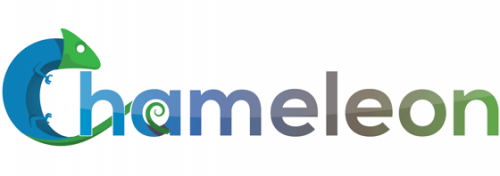Date: Thursday, March 24th, 2022
Time:11:00am – 12:00pm PST
Location: ISI

Title
Chameleon: An Innovation Platform for Computer Science Research and Education
Abstract
We live in interesting times: new ideas and technological opportunities emerge at ever increasing rate in disaggregated hardware, programmable networks, and the edge computing and IoT space to name just a few. These innovations require an instrument where they can be deployed and investigated, and where new solutions that those disruptive ideas require can be developed, tested, and shared. To support a breadth of Computer Science experiments such instrument has to provide access to a diversity of hardware configurations, support deployment at scale, as well as deep reconfigrability so that a wide range of experiments can be supported. It also has to provide mechanisms for easy and direct sharing of repeatable digital artifacts so that new experiments and results can be easily replicated and help enable further innovation. Most importantly — since science does not stand still – such instrument requires the capability for constant adaptation to support an ever increasing range of experiments driven by emergent ideas and opportunities.
The NSF-funded Chameleon testbed (www.chameleoncloud.org) has been developed to provide all those capabilities. It provides access to a variety of hardware including cutting-edge architectures, a range of accelerators, storage hierarchies with a mix of large RAM, NVDIMMs, a variety of enterprise and consumer grade SDDs, HDDs, high-bandwidth I/0 storage, SDN-enabled networking hardware, and fast interconnects. This diversity was enlarged recently to add support for edge computing/IoT devices and will be further extended this year to include LiQid composable hardware as well as P4 switches. Chameleon is distributed over two core sites at the University of Chicago and the Texas Advanced Computing Center (TACC) connected by 100 Gbps network – as well as three volunteer sites at NCAR, Northwestern University, and the University of Illinois in Chicago (UIC). Bare metal reconfigurability for Computer Science experiments is provided by CHameleon Infrastructure (CHI), based on an enhanced bare-metal flavor of OpenStack: it allows users to reconfigure resources at bare metal level, boot from custom kernel, and have root privileges on the machines. To date, the testbed has supported 6,000+ users and 800+ projects in research, education, and emergent applications.
In this talk, I will describe the goals, the design strategy, and the capabilities of the testbed, as well as some of the research and education projects our users are working on. I will also discuss our new thrusts in support for research on edge computing and IoT, our investment in developing and packaging of research infrastructure (CHI-in-a-Box), as well as our support for composable systems that can both dynamically integrate resources from other sources into Chameleon and make Chameleon resources available via other systems. Lastly, I will describe the services and tools we created to support sharing of experiments, educational curricula, and other digitally expressed artifacts that allow science to be shared via active involvement and foster reproducibility.
Bio
Kate Keahey is one of the pioneers of infrastructure cloud computing. She created the Nimbus project, recognized as the first open source Infrastructure-as-a-Service implementation, and continues to work on research aligning cloud computing concepts with the needs of scientific datacenters and applications. To facilitate such research for the community at large, Kate leads the Chameleon project, providing a deeply reconfigurable, large-scale, and open experimental platform for Computer Science research. To foster the recognition of contributions to science made by software projects, Kate co-founded and serves as co-Editor-in-Chief of the SoftwareX journal, a new format designed to publish software contributions. Kate is a Scientist at Argonne National Laboratory and a Senior Fellow at the Computation Institute at the University of Chicago.